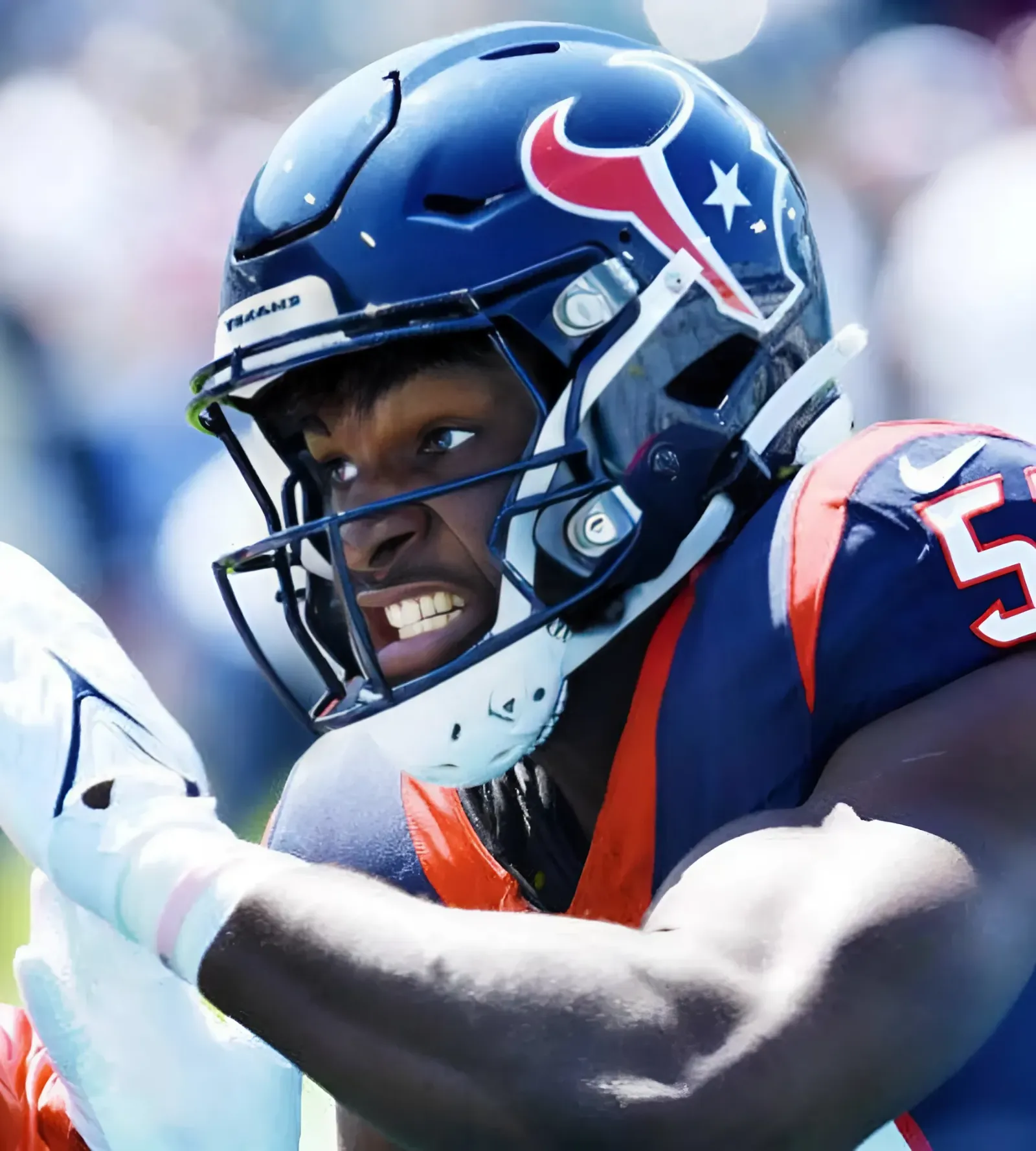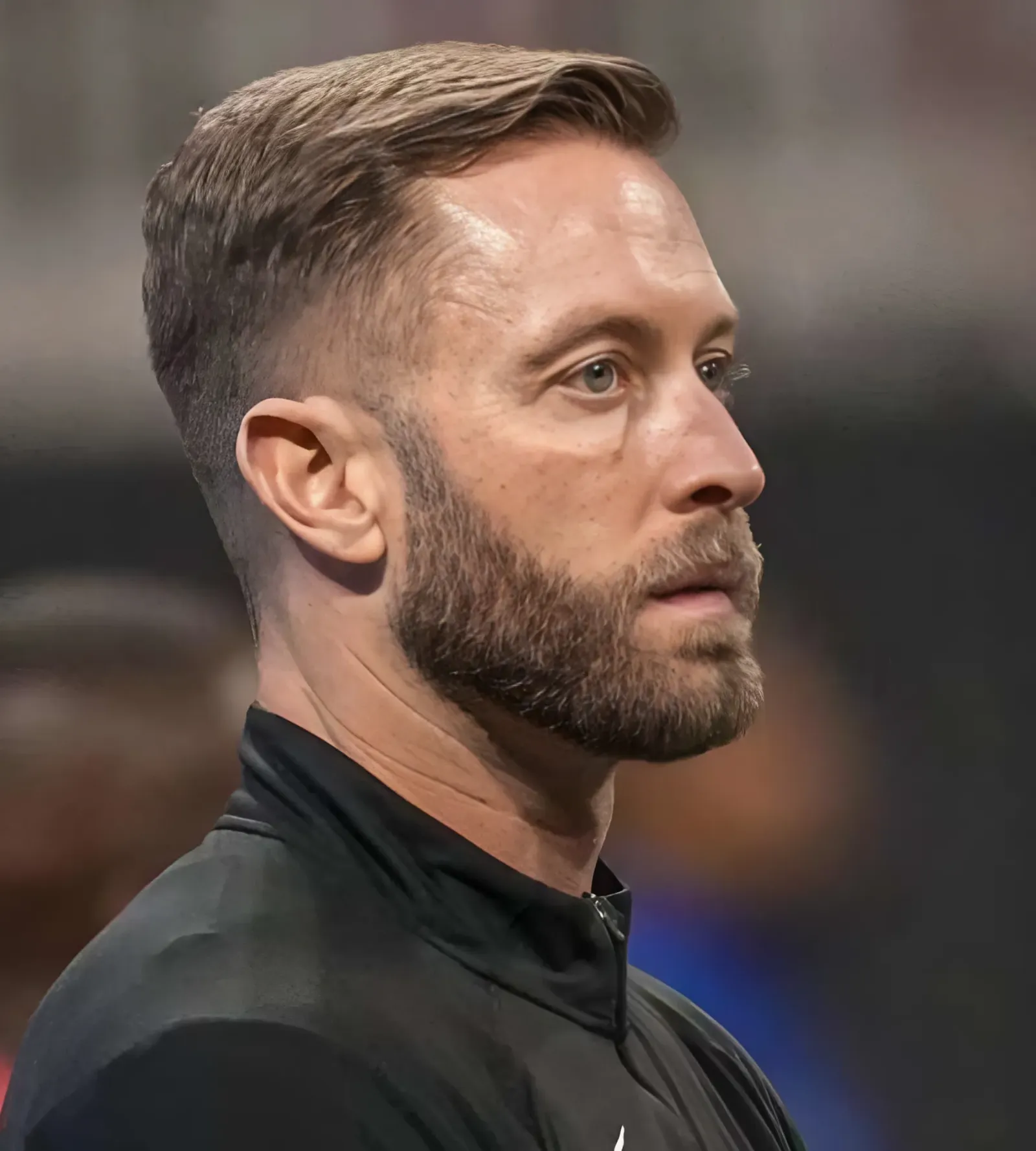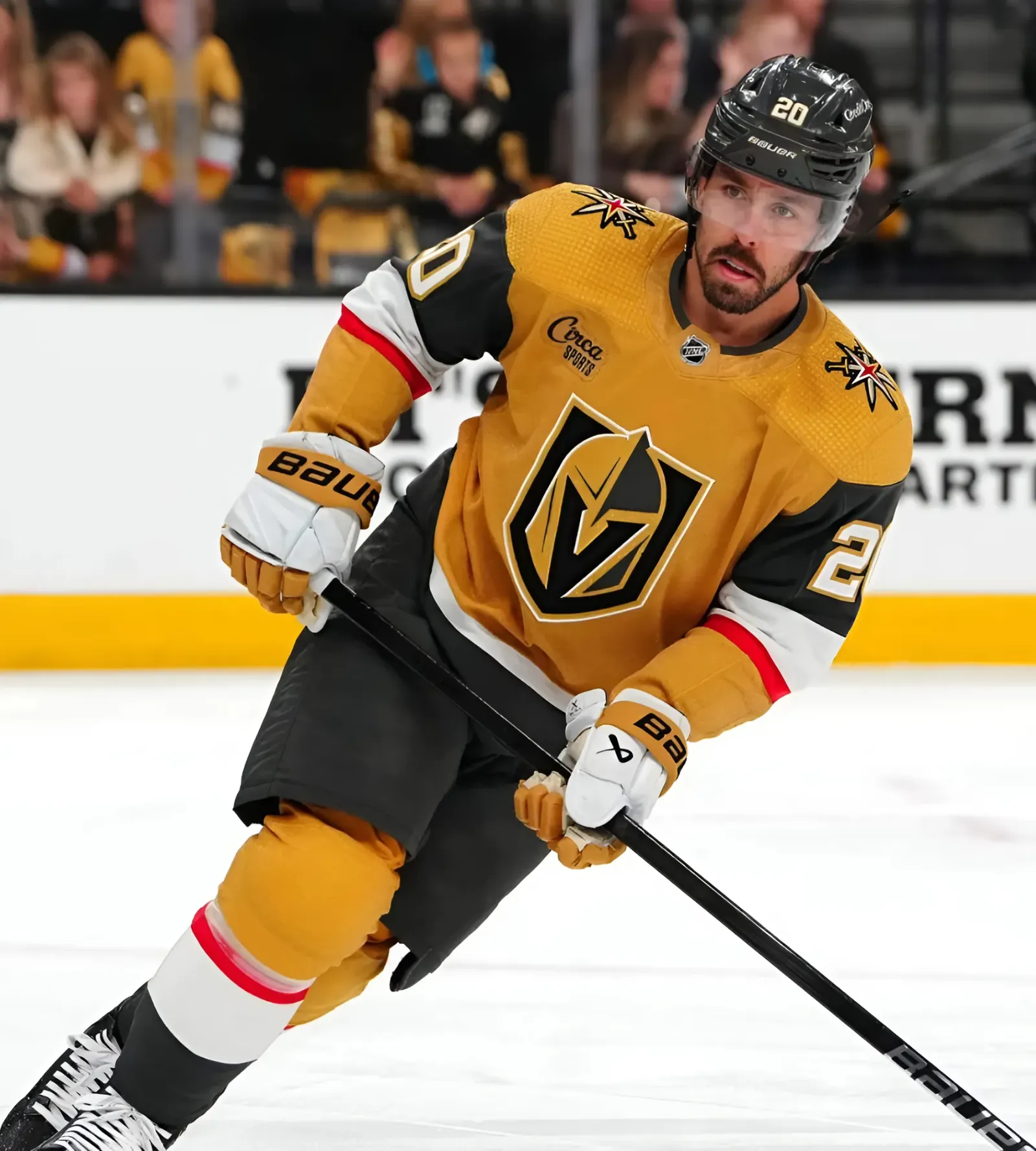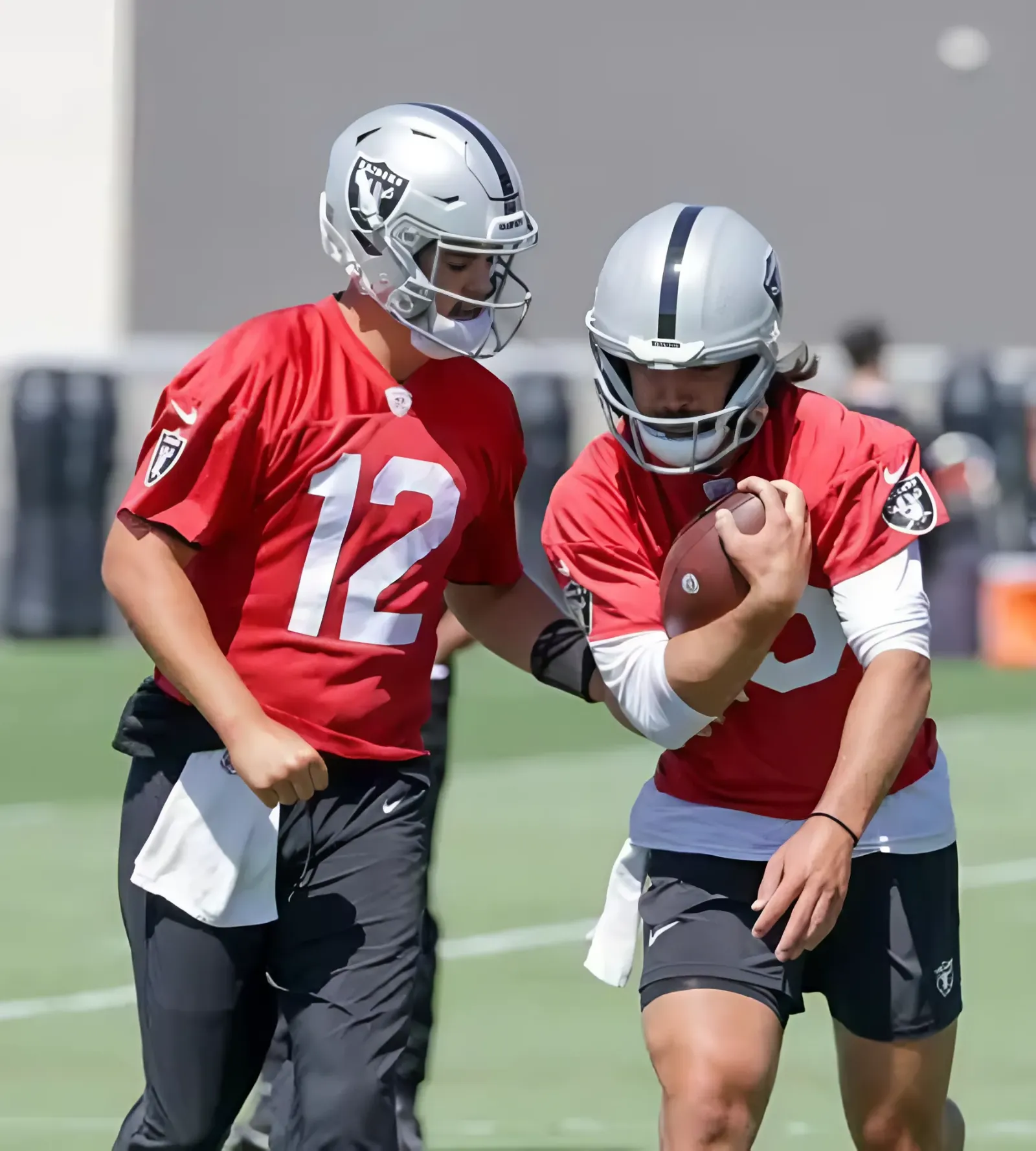
No one knows what went on exactly in negotiations between the Montreal Canadiens and recent-signee Alex Barre-Boulet. Maybe general manager Kent Hughes opened the door for the ex-member of the Tampa Bay Lightning to make the Habs roster out of training camp for 2024-25, maybe not. If Hughes did though, he’s got a lot more room to make this offseason.
No Room for Barre-Boulet
The Canadiens simply don’t have room up front as their roster currently stands for an undersized 5-foot-10 (178 pounds) 27-year-old, with only 68 games of NHL experience (294 in the American Hockey League). Regardless of where he originates (Quebec), there is no tear in the time-space continuum large enough for the Canadiens to change the make-up of their roster at the flip of a hat to appease the local media.
The first line is set. The second should be as well, assuming Kirby Dach is healthy. There might be some wiggle room for head coach Martin St. Louis in his bottom six, but, based on Barre-Boulet’s questionable defense, it’s far from ideal to deploy him in a checking role, much less when he’s got veterans like Christian Dvorak, Joel Armia, Brendan Gallagher and Jake Evans with whom to contend.
Some combination of Alex Newhook, Josh Anderson and Joshua Roy should make up the aforementioned second line alongside Kirby Dach. One of those three will inevitably shift down, leaving a single regular spot for either the subject of this piece or Rafael Harvey-Pinard in a projected battle of the hyphenates. Just imagine the promotional build-up.
Related: Likeliest Canadiens Lines Dach Will Centre in 2024-25
Even if Hughes were to work his magic and ideally trade Dvorak this offseason, does it really make sense for Barre-Boulet to jump the queue? Ahead of a prospect like Emil Heineman, whose skill set arguably aligns more with what would be expected of a bottom-six forward?
Barre-Boulet vs. Andersson
Now, signing Barre-Boulet wasn’t a bad decision. Similar to last season with signing unrestricted-free-agent Lias Andersson, it gives the Canadiens options. As Andersson had ties to executive vice president of hockey operations Jeff Gorton from his days with the New York Rangers, the signing presented a superficial risk that he would steal ice time from someone in the organization with more to offer. All it did in reality was give the Canadiens more organizational depth in the event injuries continued to hit hard. In retrospect, with Andersson having already moved on without having played a single game for the Habs, any concerns regarding Barre-Boulet may well be unfounded.
There is the one difference in that Andersson had signed a two-way deal. Barre-Boulet’s is a one-way, which pays him $775,000 regardless of where he plays. However, that was true of his last two years under contract with the Lightning. And, while Barre-Boulet did make the Lightning’s opening-night roster last season, they weren’t exactly shy about demoting him to the AHL, where he played 23 games (36 in the NHL). So, it shouldn’t really affect Hughes’ decision one way or another, even if the centre/winger is eligible for waivers.
Ultimately, this is a case of no harm, no foul, if they end up losing Barre-Boulet on waivers. The Canadiens have spent zero resources developing the asset and it would almost be like Hughes never signed him at all, which, again, wasn’t necessary during an offseason in which re-signing their restricted free agents was the highest, maybe only priority. It’s a situation in sharp contrast relative to the other players with whom Barre-Boulet would be fighting for a spot, whether it be in the top six (Roy, Anderson), where he would be most effective, or the bottom.
Barre-Boulet vs. Harvey-Pinard
From a financial standpoint, it may make more sense to play him over a Gallagher, Dvorak or Armia. However, Gallagher has a no-movement clause and Hughes is probably dead set on showcasing the latter two for the sake of extracting as much value as possible on the trade market. That’s maybe true even in the case of Evans, whose $1.7 million hit is over double Barre-Boulet’s ($775,000). However, for the defense Evans brings to the table, he’s worth it. Again, the only real sensical comparison is between Barre-Boulet and Harvey-Pinard ($1.1 million), who also is on a one-way deal, after earning a level of respect within the organization and amongst fans after a 14-goal 2022-23 rookie season (34 games).
There’s no avoiding acknowledgement of Harvey-Pinard’s underwhelming 10-point follow-up as a sophomore (45 games). However, it’s worth noting Barre-Boulet scored just nine himself. The Canadiens didn’t even bother to qualify Jesse Ylonen after he scored eight. In theory, that makes him the latter’s potential replacement on the NHL roster, but not so fast. In light of Andersson’s departure, it makes more sense to view Barre-Boulet as his replacement as one of the Laval Rocket’s primary offensive weapons.
At the very least, it should be seen as a probable eventuality, unless of course Hughes manages to open up more space this offseason. Even then though, that space wouldn’t specifically be for Barre-Boulet, but whichever player earns it in training camp. With that in mind, if Hughes did open the door for Barre-Boulet the slightest bit, it’s up to him to push his way through and onto the main roster. Even if that fact was worth clarifying in this piece, the concept itself isn’t newsworthy… similar to how his signing barely was.
There are two reasons why it might have been (newsworthy). First, because Barre-Boulet sparked some interest among Canadiens fans when he ended his Quebec Major (Maritimes) Junior Hockey League career as its scoring leader in 2017-18 (only to sign with Lightning). Second, because he was Hughes’ only signing that first day of free agency, which drew attention to his general lack of activity relative to other teams.
In case it wasn’t clear by now, Hughes is no fool. If he kept his number of signings to a minimum, it was for a reason: that there’s no need to commit to big names at this stage of the rebuild. If he made a 27-year-old forward without much of an NHL resume his only signing, it was also for a reason. It could be that he sees something in him. It could also be that the potential reward outweighs the risk (virtually none). It could be that Barre-Boulet made a mistake signing with the Lightning initially, when there was no room for him on that team’s stacked soon-to-be championship roster. He might have just made another though, thinking there was room on a team with a prospect pipeline as deep as the Canadiens have. One way or another, the mistake, if there indeed was one, wasn’t on Hughes’ part.



